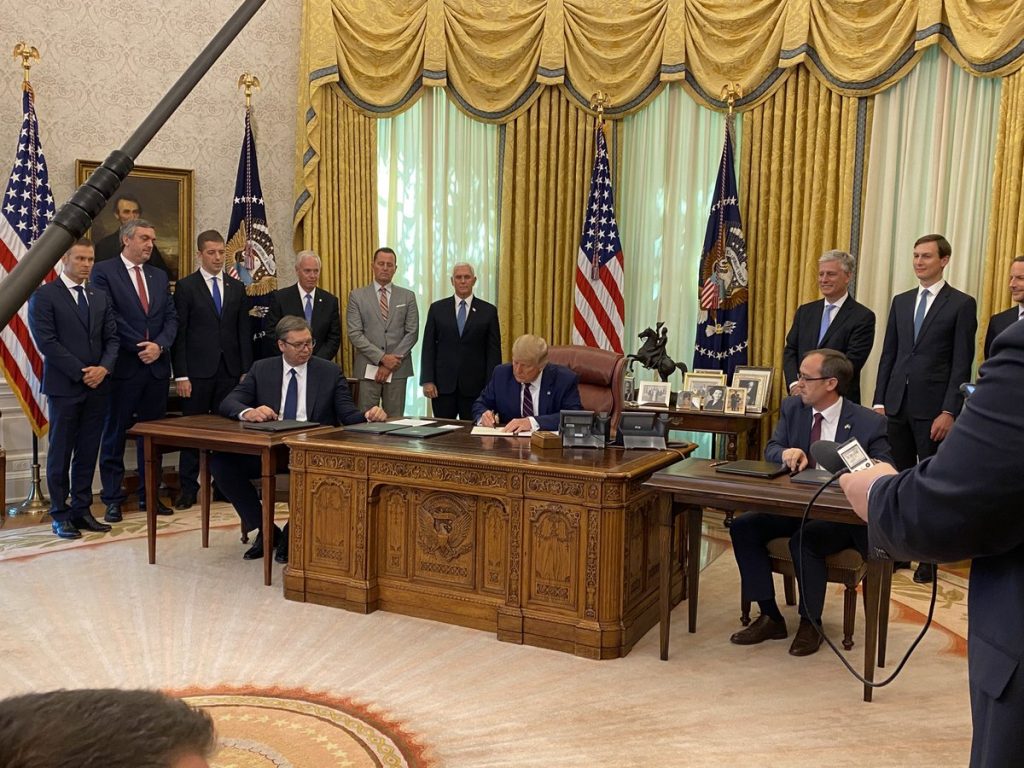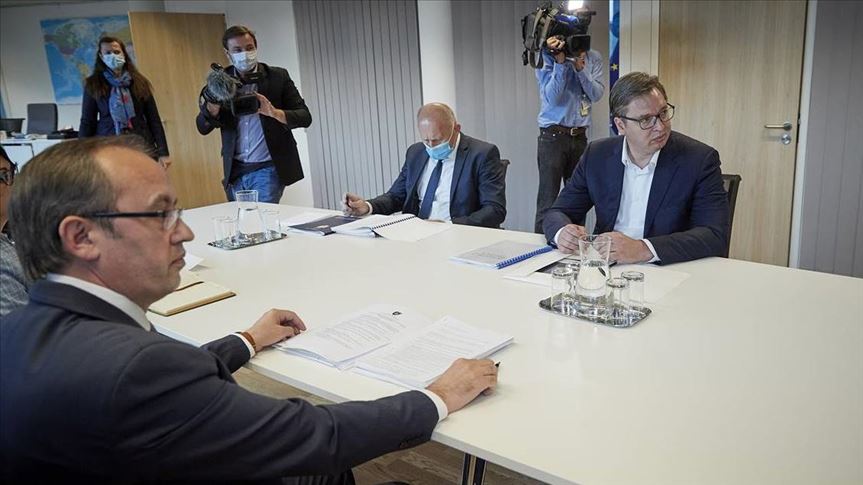It is part of the negotiations and dialogue between Kosovo and Serbia? However, the issue of establishing the Community of Serb Municipalities (CSM) most found as called Association of Serb-majority municipalities may cause a bad situation for the Government of Kosovo in the future. Intended to be established by the Brussels Agreement of 2013, the Association would include the gathering of ten municipalities of Kosovo where the majority of populations are Serbs, this has been agreed by both countries. After two years have renewed the agreement in 2015 with the mediation of European Union, to then agree with the principles for its establishment. This agreement specifies that Association will have the organizational structure which is foreseen to have an assembly as a supreme body, composed of representatives appointed by the members elected by the assemblies of the participating municipalities.
In a decision of 39 pages, the Constitutional Court of Kosovo had found that principles of this association, as described in the agreement of August 25, 2015, are not fully in line with the Constitutional spirit, respectively with some articles dealing with chapters on equality before the law, Fundamental Rights and Freedoms and the chapter on the rights of Communities and their Members. The request for Constitutionality interpretation of the principles for this agreement in 2015 was made by the then president, Atifete Jahjaga, as the three opposition parties, including the now-ruling LVV, had blocked the assembly sessions at the time, demanding the withdrawal of Prime Minister Isa Mustafa’s signature from the Association of Serbian Municipalities agreement as they considered it unconstitutional.
Eight years later, before the next dialogue session between Kosovo and Serbia, the topic of CSM was reactivated in June this year. Serbian President, Aleksandar Vucic, had requested for CSM be formed as soon as possible, “with executive powers”, otherwise the Kosova side would not have to travel to Brussels talk. On the other side, President of Kosova, Vjosa Osmani, but also the Prime Minister, Albin Kurti said that there will be no Association (CSM), as it would turn Kosovo into a dysfunctional state, taking the example of Bosnia. That the formation of ‘Association with executive powers’ is a detriment of Kosovo, has been confirmed for the local media, by Alon Ben Meir professor at New York University. According to Meir, creating CSM means giving executive power to Serbian state, within Kosovo territory. In practice this means that in a future, community of Serb-majority municipalities would gain an extraterritoriality towards Kosovo, thus with this agreement, the fear of Bosnianization of Kosovo seems to be real.
While Serbia continues to insist on the CSM establishment, the latter itself has not implemented Brussels agreements so far, and is delaying dialogue with the request for Association establishment. Serbia has great influence over the Serbian political parties in Kosovo who are part of the Assembly. The chairman of the Parliamentary Commission for Kosovo in the Assembly of Serbia, has threatened that if CSM is not formed soon, Serbian political party ‘Lista Srpska’ will be withdrawn from Kosovo Assembly. ‘Lista Srpska’ has 10 deputies in the Kosovo Assembly and is part of Kurti government.
On the other hand, Kosovo is currently not able to continue with the old agreement nor to come up with the idea for a new agreement. However, if this agreement for Association will not be implemented, then the idea of exchanging territories will be put on the table. Meanwhile the United States and the European Union are constantly repeating that Kosovo has a responsibility to form the Association of Serbian Municipalities. A possibility for resolving the issue of Association would be the implementation of Brussels agreement in 2013 and the Constitutional Court decision, that would be, any municipalities union or any kind of non-governmental organization can be formed, but without executive powers. The agreement does not have to be “all or nothing” by either part, the agreement must be negotiated but this should happen after the final agreement, which would result in the recognition of Kosovo by Serbia.
Post Author
Author
-

Kosovo based analyst that focuses on current affairs, communication and technology. She studied Albanian Literature, and Economics, Management and Information Sciences. MA in Journalism and Communication. Co-authored the Worlds of Journalism Study report on Kosovo Journalists.
View all posts







